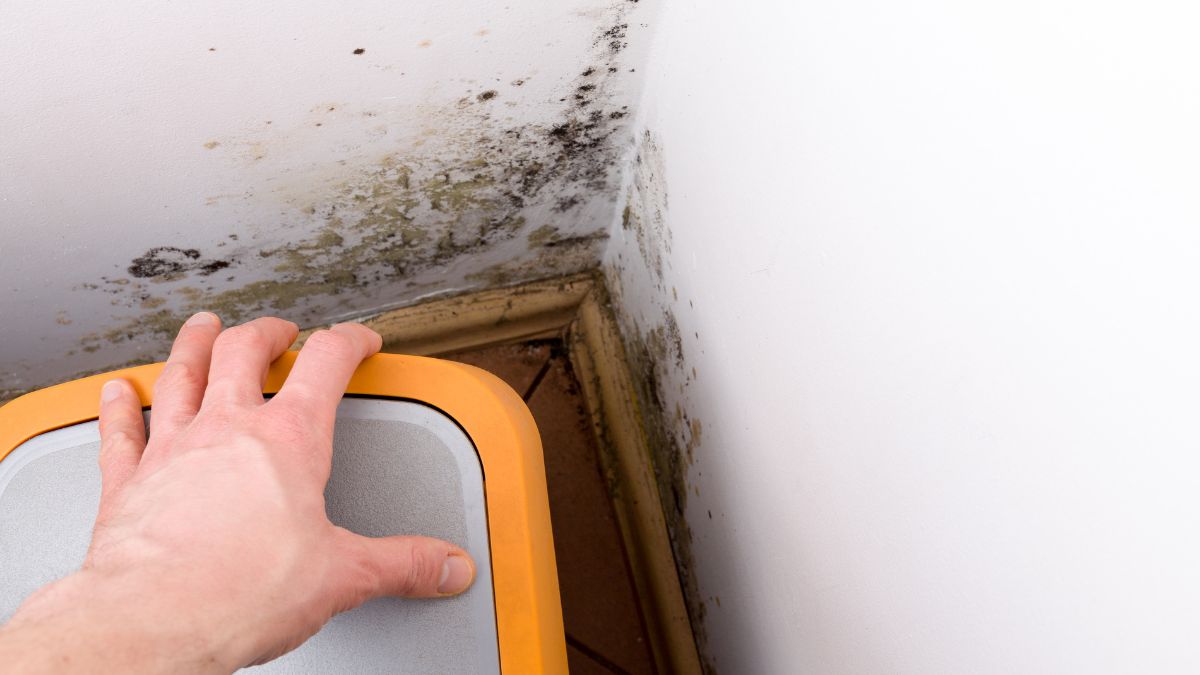Black mold… that nasty, insidious fungus that can invade your living spaces. It’s unsightly, potentially harmful to health, and something no homeowner wants to discover. Known scientifically as Stachybotrys chartarum, black mold is particularly notorious for its ability to produce mycotoxins. Understanding what invites this unwelcome guest into your home is the first step in safeguarding your health and property.
Moisture
One of the causes of black mold in homes is moisture—without it, mold cannot grow. Leaks in your home, whether from faulty plumbing, a damaged roof, or an aging air conditioning system, create the perfect breeding ground for mold. These leaks often go unnoticed until the mold has caused visible damage or health issues. Regularly inspecting your home for leaks and addressing them promptly can significantly reduce the risk of mold growth.
Read more: Why Is Black Mold A Health Concern?
Flooding
Another cause of black mold in a house is flooding, whether due to natural disasters or plumbing failures. Flooding can immerse your home in water, laying the foundation for black mold to flourish. The prolonged dampness that follows flooding often leaves materials struggling to dry out. This environment supports the growth of common molds. Further, it encourages the development of more dangerous strains, such as Stachybotrys chartarum.
A Breath of Stale Air
The third cause of black mold in homes is poor ventilation, which traps moisture and organic particles inside your home, creating a paradise for mold spores. Kitchens, bathrooms, and laundry areas are especially prone to this issue, as everyday activities add to the indoor humidity. Implementing good ventilation practices, such as using exhaust fans and opening windows, can disrupt the air, keeping it fresh and reducing mold growth potential.
Cold Surfaces Turning Wet
The fourth cause of black mold in a house is condensation. Condensation forms when warm, humid air meets cold surfaces, producing water droplets that mold spores adore. This phenomenon is particularly common in poorly insulated homes during the colder months. To combat this, ensure rooms are adequately ventilated to minimize temperature differences that lead to condensation, a precursor to the.
Breathe Easy Again
Navigating the challenges posed by black mold requires vigilance and an understanding of its root causes. Recognizing the symptoms of mold exposure in a house early can protect your health and your home from the insidious effects of mold. If you suspect mold growth or want to ensure your home remains a safe haven, consider a professional mold inspection in Atlanta. Our mold specialist in Atlanta specializes in restoring your home environment’s health.

